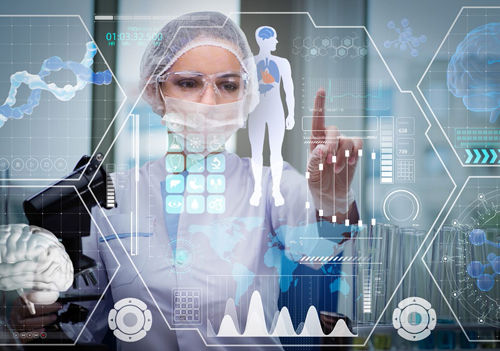ADVOCACY: From microscopes to ‘datascopes’
Just as microscopes changed medicine, artificial intelligence is a ‘datascope’ that will give new insight to solutions previously thought unimaginable, writes Ben Pring, founder and managing director, Cognizant’s Center for the Future of Work
In 1831, Manchester Royal Infirmary in the UK used 50,000 leeches in treating the ill of the first great industrial city. Twenty years later, John Leonard Riddell, of Tulane University in New Orleans invented the first practical binocular microscope. Soon after, Manchester Royal Infirmary closed its leech aquarium.
Why? Riddell’s technology allowed doctors to see – at a cellular level – what was truly causing the problem. A microscope could detect a bacteria that was causing tuberculosis. An intestinal infection that would lead to cholera. A cell mutating into a cancer. The medical microscope not only made the leech redundant but created an industry that today employs millions of people around the world, and in the process made the world a better place.
In the transformation from leeches to microscopes, did Riddell destroy anyone’s job? Yes, probably. But microscopes were central to the explosive growth of healthcare that lead to the population and economic growth that made the modern world.
Today, we stand on the cusp of a transition into a new economy, in which prosperity and growth will leverage a whole new set of technologies that are set to profoundly change what we do and how we do it; central to this will be ‘the great story of our time’ – the rise of artificial intelligence.
Today, nobody would argue that a hundred years ago we should have stayed in a leech-based paradigm. But today, some argue that our new tools are too powerful and dangerous to use – that they risk being too disruptive to society and that their downsides outweigh their upsides.
To us, this argument doesn’t hold water. AI is set to revolutionise just about everything we can think of, and just as Dr Riddell’s microscope opened up new vistas that improved all of our lives, our new AI tools will function as ‘datascopes’ – in medicine and every other industry – allowing us to reach new thresholds of creativity, insight and efficiency which again will improve all of our lives.
Of course, if your current business model is a modern version of leech breeding or retailing, then AI is bad news. You may be able to eke out a living for a generation or two, as leech magnates did for a decade or two, but nobody mourned their passing and nobody will mourn the passing of their modern equivalents.
Don’t fear new tools – use them
In fact, in the medical world, it’s likely that the next generation of lawyers will argue that doctors who don’t use AI tools are guilty of medical malpractice. In another generation, using non-AI infused technology will seem as barbaric as using leeches does today.
The trick to overcoming the ‘machines will destroy human jobs’ mental trap is not to think of AI as a tool that reduces the labour component of a process, but rather as a means to increase the overall scale of the process. AI will allow us to grapple with a world awash with information that is denser, more complex and coming at us faster than ever before.
In our recent book, What To Do When Machines Do Everything, we argue – counter intuitively to some – that in 10 years employment levels in the western world will be higher than they are today. For some people that’s a head scratcher. But in our vision AI is the next generation of tool that, as tools have always done, allow people to do things faster and easier and to do things that they couldn’t do without them.
AI and automation will only have a net negative effect on jobs if – and this is a huge if, that we don’t believe – we can’t find new things to do.
Dr Riddell’s microscope allowed people a panoply of new things to do – thank heavens. Our new tools, in medicine and every other industry, will allow us to grapple with a world that faces huge challenges – the environment, terrorism, food insecurity – which, to be solved, will require innovative new approaches.
The Bottom Line? New tools don’t just ‘automate people away’; they allow people to do things they have never been able to do before. That is the future of growth, opportunity and new jobs for anyone and everyone who can learn to use these tools. Anyone and everyone should learn to use them.












